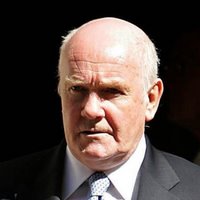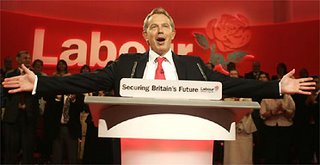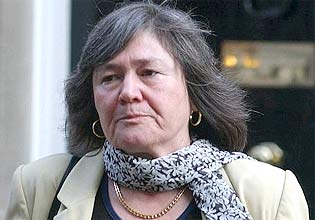 I began this week's postings on the Labour Conference by posing the question who is backing Gordon Brown for PM among the Press. I end it by looking at how much support he - or any other candidate - can expect from within the Cabinet.
I began this week's postings on the Labour Conference by posing the question who is backing Gordon Brown for PM among the Press. I end it by looking at how much support he - or any other candidate - can expect from within the Cabinet.For this purpose I have divided Labour's 23-strong top team into four groups ranging from Gordon's most public and enthusiastic supporters to the small faction who seem determined to stop him at any price.
It will immediately be seen that the Chancellor is in a very strong position, and that's reckoning without the cash for honours affair bundling Mr Blair out of office early after all.....
I will be updating this list regularly as the contest draws nearer and if and when the public positions of any Cabinet members change. I have a slight hunch that Alan Johnson might well be the next one to endorse him.
Cabinet members explicitly and publicly backing Gordon Brown for the leadership
John Prescott
Margaret Beckett
Peter Hain
David Miliband
Cabinet members who have not expressed a public preference but who are known allies of Mr Brown
Jack Straw
Alistair Darling
Douglas Alexander
Des Browne
Ruth Kelly
Stephen Timms
Cabinet members who are currently remaining neutral, including those required to do so by virtue of their position
Tony Blair
Alan Johnson
Patricia Hewitt
Hazel Blears
Hilary Benn
Hilary Armstrong
Jacqui Smith
Valerie Amos
Cabinet members who have privately expressed doubts about Mr Brown and who can reliably be expected to support "Anyone but Gordon"
John Reid
John Hutton
Charles Falconer
Tessa Jowell
























